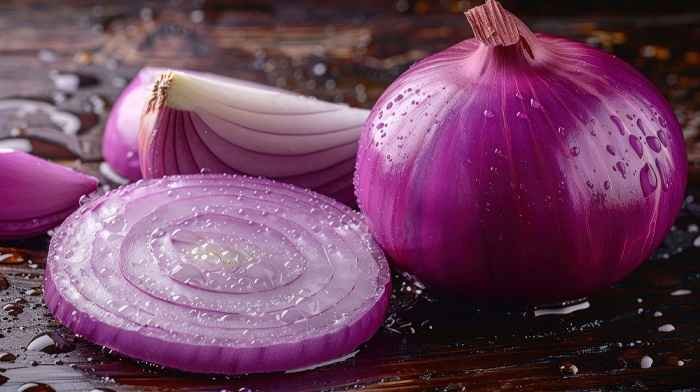Onion boils, also referred to as boils or abscesses, are painful, pus-filled lumps that develop under the skin, often as a result of bacterial infection. These boils typically form around hair follicles or oil glands and can appear on various parts of the body. While they can be uncomfortable and unsightly, understanding their causes, symptoms, and treatment options can help you manage and heal them effectively.
In this blog, we’ll explore the key details about onion boils and provide actionable tips for relief.
What Are Onion Boils?
Onion boils are not related to actual onions but rather refer to boils that may resemble the shape or layered structure of an onion when inflamed. They are localized skin infections caused primarily by bacteria, such as Staphylococcus aureus. These boils often start as red, tender bumps that gradually fill with pus as the infection progresses.
Common Causes of Onion Boils
- Bacterial Infections: The most common cause is a bacterial infection, particularly from Staphylococcus aureus. This bacteria can enter the skin through small cuts, insect bites, or abrasions.
- Blocked Sweat Glands or Hair Follicles: When a sweat gland or hair follicle becomes clogged, it can create an ideal environment for bacteria to thrive, leading to a boil.
- Weakened Immune System: Individuals with compromised immunity are more prone to recurrent boils.
- Poor Hygiene: Lack of proper skin care can increase the risk of infection.
- Skin Conditions: Conditions such as acne or eczema can make the skin more susceptible to boils.
Symptoms of Onion Boils
- A red, swollen lump under the skin that gradually increases in size.
- Pain and tenderness in the affected area.
- A white or yellow center indicating pus accumulation.
- Warmth and inflammation around the boil.
- In severe cases or if untreated, fever and fatigue may occur as signs of a spreading infection.
Home Remedies for Onion Boils
If the boil is small and not severe, you can often treat it at home with these remedies:
1. Warm Compress
Applying a warm compress to the boil several times a day can help reduce pain and encourage the boil to drain naturally. To do this, soak a clean cloth in warm water, wring it out, and place it on the affected area for 10-15 minutes.
2. Turmeric Paste
Turmeric has natural antibacterial and anti-inflammatory properties. Mix turmeric powder with water to create a paste, and apply it to the boil. Rinse off after it dries. Drinking turmeric tea may also help fight the infection from within.
3. Tea Tree Oil
Tea tree oil is a powerful natural antiseptic. Dilute a few drops of tea tree oil in a carrier oil (like coconut or olive oil) and apply it to the boil using a cotton swab. Repeat this twice daily.
4. Epsom Salt Bath
Soaking the affected area in warm water mixed with Epsom salt can help draw out the infection and reduce swelling.
5. Raw Onion Compress
Onions contain antimicrobial compounds that can aid in fighting infections. Place a thin slice of raw onion over the boil, cover with a clean cloth, and leave it for about an hour. Repeat this process a few times daily.
When to Seek Medical Attention
While many boils can be treated at home, you should consult a healthcare professional if:
- The boil persists for more than two weeks without improvement.
- It becomes excessively large, painful, or red.
- You develop a fever or experience fatigue, which may indicate a spreading infection.
- You have recurrent boils or multiple boils forming at once (a condition known as carbuncles).
- You have a compromised immune system or other underlying health conditions, such as diabetes.
A doctor may recommend draining the boil or prescribing antibiotics to treat the infection.
Preventing Onion Boils
- Practice Good Hygiene: Wash your hands regularly and keep your skin clean to prevent bacterial buildup.
- Avoid Sharing Personal Items: Don’t share towels, razors, or clothing, as these can spread bacteria.
- Treat Minor Cuts and Wounds Properly: Clean and cover any small injuries to prevent infection.
- Maintain a Healthy Lifestyle: Eating a balanced diet, staying hydrated, and managing stress can boost your immune system and reduce susceptibility to infections.
Conclusion
Onion boils, while uncomfortable, are generally treatable with proper care and hygiene. Home remedies like warm compresses, natural treatments, or even raw onion compresses can help alleviate symptoms and support healing. However, for persistent or severe cases, seeking medical attention is essential to prevent complications. By taking preventative measures and addressing boils promptly, you can maintain healthy, boil-free skin and enjoy greater peace of mind.
For more, visit our website, Homethreads







